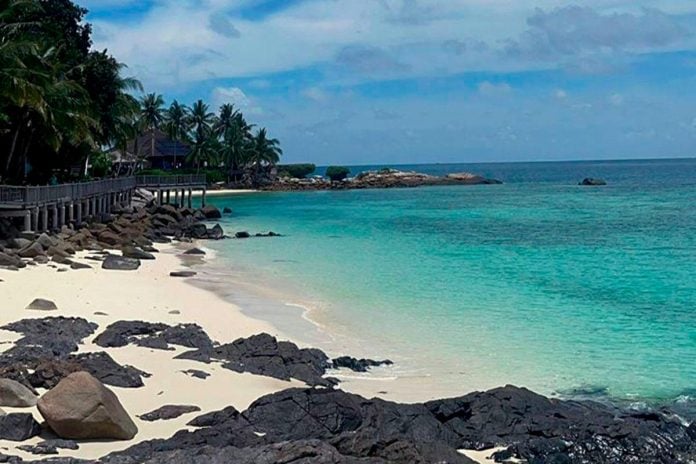MERSING: Off Johor’s eastern coast, a cluster of islands is showing how tourism can safeguard nature while sustaining culture and livelihoods.
Tengah Island Conservation (TIC) is working with local communities to prove that protecting fragile marine ecosystems need not come at the expense of economic survival.
Its president Cher Chua-Lassalvy stressed that conservation succeeds only when islanders are equal partners.
“We won’t make any difference if the communities around us aren’t involved,” she explained.
The initiative began with school programmes before expanding to Mersing’s shrinking islander population.
The cluster includes Pulau Besar, Pulau Tengah, Pulau Rawa, Pulau Pemanggil and Pulau Harimau.
Cher admitted that winning trust required patience.
“People wondered if we were making money off them. You have to listen first.”
Today, TIC works with village leaders, trains youths and preserves traditions such as the Zapin Pulau dance, even converting old homes into community hubs.
These collaborations create alternative livelihoods through boat rentals, homestays and catering, turning conservation into economic opportunity.
“When visitors spend locally, they help families send their kids to school,” Cher noted.
She emphasised that protecting reefs and mangroves is both a moral duty and an economic necessity.
“Nature saves governments millions,” she explained, citing coral reefs that shield coasts from erosion.
Yet their true value is often overlooked.
The group is now working with the Finance Ministry to document such “spillover benefits,” showing how conservation spending ripples through the wider economy.
Still, Cher warned of sudden policy decisions such as land reclamation or mega-resorts that could destroy what makes Pulau Besar unique.
Instead of chasing large developments, she urged shining a spotlight on what already exists by promoting authentic village life and culture.
“It’s about balancing tourism and heritage. If we have too many people, that’s a problem too.”
As part of the United Nations Sustainable Tourism Observatory Network, TIC also contributes data and expertise to help Malaysia design a national framework for regenerative tourism.
“Malaysia is still relatively undeveloped compared with our neighbours,” she said.
“It’s not too late to plan carefully.”
She encouraged more businesses to dedicate part of their profits to environmental goals.
“Protecting nature makes business sense, our reefs thrive, turtles return and visitors keep coming.”
TIC executive director Noor Azariyah Mohtar highlighted its Rumah Eko initiative, which merges conservation data with authentic visitor experiences.
“We collect habitat, species and island-waste data while partnering with islanders to showcase food such as Laksa Pulau and performances such as the Zapin Pulau dance.”
To safeguard biodiversity, she called for:
• Carrying-capacity studies and zoning within Johor Marine Park to manage tourist and boat traffic;
• Community guardianship to curb turtle-egg poaching, enforce no-anchoring and no-fishing zones, and protect islands; and
• Responsible tourism packages that channel visitor spending to local stalls, heritage shows and community facilities
She also urged tourists to follow simple rules: no littering, no taking corals or marine life and respect for local culture.
TIC is working with authorities and the Fisheries Department on signage, guided tours and upskilling programmes for operators, women and schoolchildren.
“These will feed into its upcoming Eko Guardian programme to raise hospitality standards and community stewardship.”
Within the next decade, Noor Azariyah envisions Pulau Besar as a model marine park where environmental protection and cultural preservation go hand in hand.
She urged travellers to spend wisely.
“When you spend, you might help an island community with daily expenses or send a child to school.
“With science, culture and community woven together, Pulau Besar shows how tourism can protect the very beauty that draws travellers here, ensuring reefs, turtles and traditions endure for generations.”








